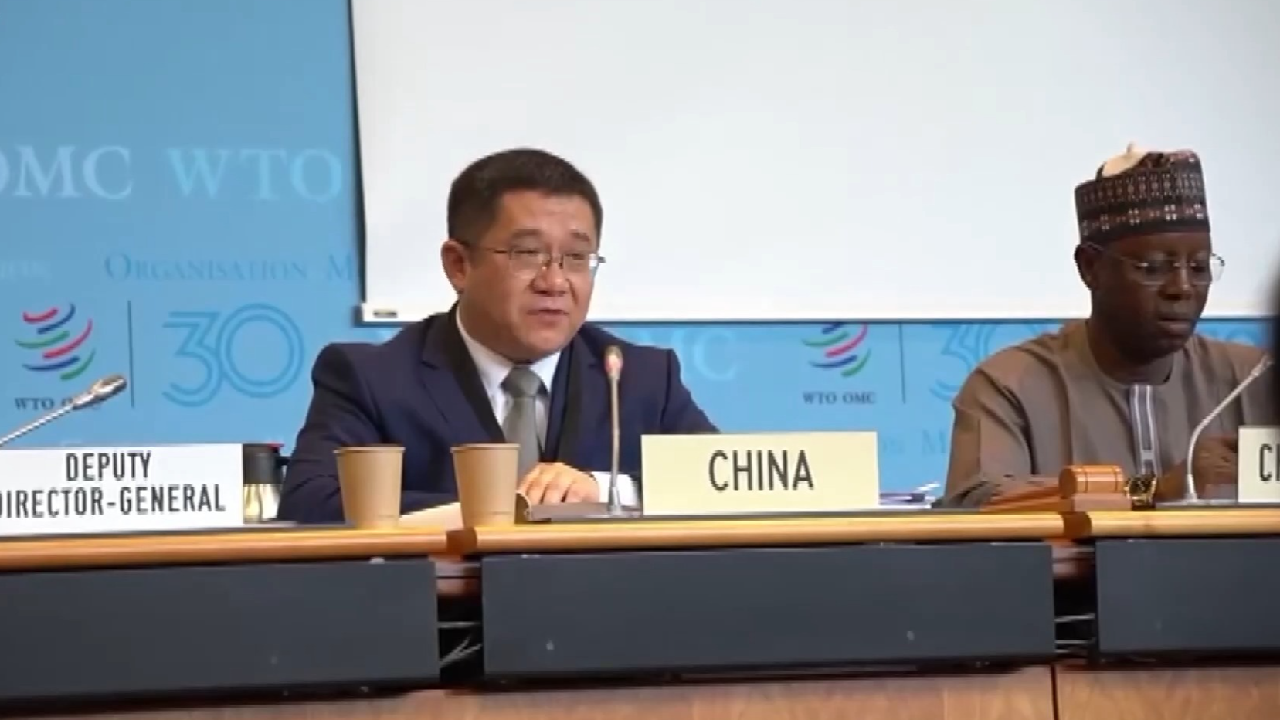China addresses WTO members' concerns, denies 'overcapacity' claims
China denied accusations of "overcapacity" and "economic coercion" presented by some World Trade Organization (WTO) members during the second session of the WTO's ninth trade policy review of China on Friday. Additionally, the Chinese delegation engaged proactively in addressing concerns expressed by WTO members about China's trade policies.

The Chinese representatives referenced the third plenary session of the Communist Party of China's (CPC) 20th Central Committee, which concluded on July 18. This session saw the adoption of a resolution aimed at comprehensively deepening reform to advance Chinese modernization. They emphasized that this resolution demonstrates China's dedication to advancing reforms, expanding openness, and pursuing high-quality development, thereby creating significant opportunities for the global community.
Addressing specific criticisms regarding "overcapacity" and "economic coercion," China underscored that its subsidy policies adhere fully to WTO rules. They attributed the success of Chinese enterprises to market competition rather than government support. The delegation highlighted the importance of China's new energy products in the global shift towards green and low-carbon technologies, arguing that current global demand negates the notion of "overcapacity" in these sectors.
China also strongly denied any involvement in "economic coercion," insisting that such actions have never been part of its trade policy. The delegation criticized certain members for resorting to "long-arm jurisdiction," creating restrictive lists, and arbitrarily sanctioning enterprises and individuals from other countries, which they identified as the real sources of economic coercion.
Further, the Chinese representatives transparently and openly addressed a variety of issues including industrial policy, subsidies, state-owned enterprises, intellectual property protection, cyber security and data flow, government procurement, the construction of a unified national market, export controls, standards setting, inspection and quarantine measures, and transparency.
The delegation offered detailed explanations on policy objectives, operational specifics, implementation effects, and future directions. They also clarified China's position on expanding market access for least developed countries, supporting the status of developing members, and pragmatically handling special and differential treatment issues.
During the review, representatives from 71 WTO members participated, with many praising China's achievements in reform and opening up, along with its significant contributions to the WTO. They expressed a desire to deepen economic and trade relations with China and looked forward to China's enhanced role in global economic recovery, practical cooperation with developing members, and the maintenance of the multilateral trading system.
Ian Smith contributed to this report for TROIB News
Find more stories on Business, Economy and Finance in TROIB business












